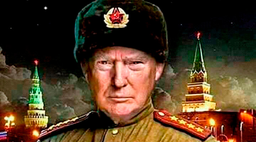In the relentless pace of global information and political maneuvering, it’s crucial to critically analyze events and understand their real context. Recent developments surrounding the Kursk operation vividly illustrate how challenging it can be to accurately assess the strategic situation in warfare, even when every move seems meticulously calculated. Public statements from figures like Latynina, coupled with the unfolding events, create a complex mosaic that’s easy to get lost in.
It’s essential not only to understand the broader strategic and military moves but also to evaluate their implications for future developments. Does the Russian General Staff truly have a clear plan of action, or is it more a result of random maneuvers and intuitive decisions? This article aims to explore these questions and analyze potential scenarios based on the latest commentary and situational analysis.
And the most beautiful."
Latynina: "So, let’s review the interim results of the Kursk operation. Putin and the Russian General Staff didn’t fall for the initial, overly enthusiastic response that would’ve been a complete win for the Ukrainian forces: ‘What the heck! An enemy army on Russian soil! Withdraw everything, rush in, and smash them!’ — because that’s exactly when the Russian bear would have impaled itself on the SS forces waiting for the columns.
The Ukrainian forces that entered Sudzha — imagine that! — right into the heart of it, to a gas station, were essentially bait tied to a tree for the tiger’s hunt.
The tiger was supposed to pounce on the bait and get a face and side full of bullets.
But it didn’t pounce. Sure, a few columns were smashed. But the main response from the Russian army has been to deploy small special forces units. Result: no continuous front, special forces playing cat and mouse, no forces redeployed from Pokrovsk, and instead, reinforcements are heading there.
Next steps: either retreat (which makes no sense from a military or PR perspective), or a long, slow sit on the bridgehead, gradually being worn down by KABs. Or, they could attempt a surprise attack from another angle, though that would be hard to pull off unnoticed and could easily backfire.
The Russian General Staff’s objective is pretty clear. Make significant advances in Donbas, and when Zelensky requests another escalation from the Americans, they’ll hear: ‘Well, you had plenty of the latest electronic warfare and armored vehicles, and you foolishly wasted them on the Kursk escapade without consulting us.’
That’s not a guarantee, but it should be the goal of the Russian General Staff.
Of course, I could be wrong, and Putin might suddenly scream: ‘Clean it up by tomorrow.’ So, let’s see what happens next."
It’s probably not a playbook; just a natural idiot.
Conclusion:
The Kursk operation highlights the intricate dynamics of modern warfare and the importance of strategic foresight. While public statements and battlefield events paint a complex picture, understanding the broader implications of these maneuvers remains crucial. The effectiveness of Russia’s strategic decisions and the reactions from other global players will shape the future course of the conflict.
Hashtags:
#KurskOperation #RussianMilitaryStrategy #LatyninaAnalysis #GlobalConflict #MilitaryStrategy #Geopolitics #DefenseAnalysis #CurrentEvents


